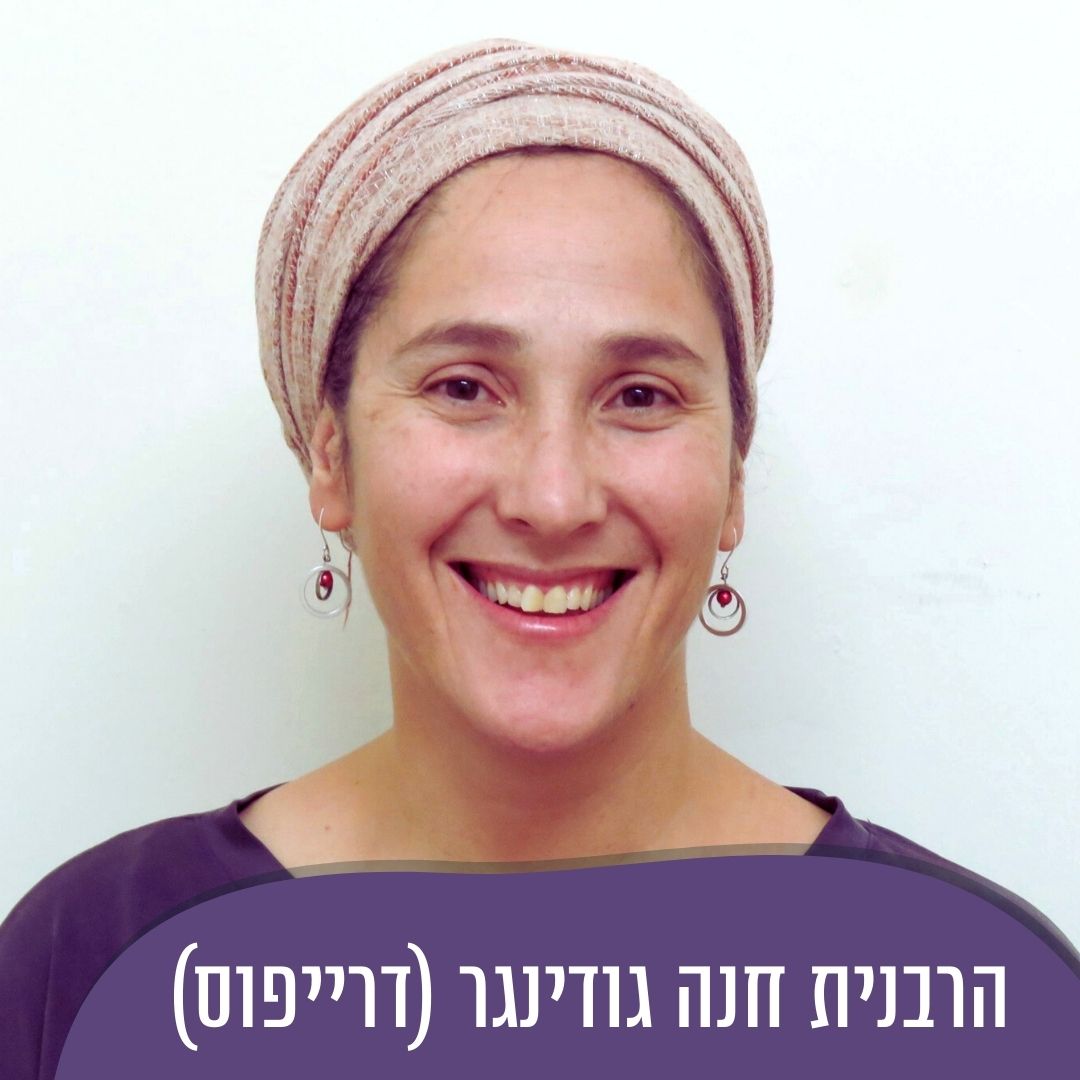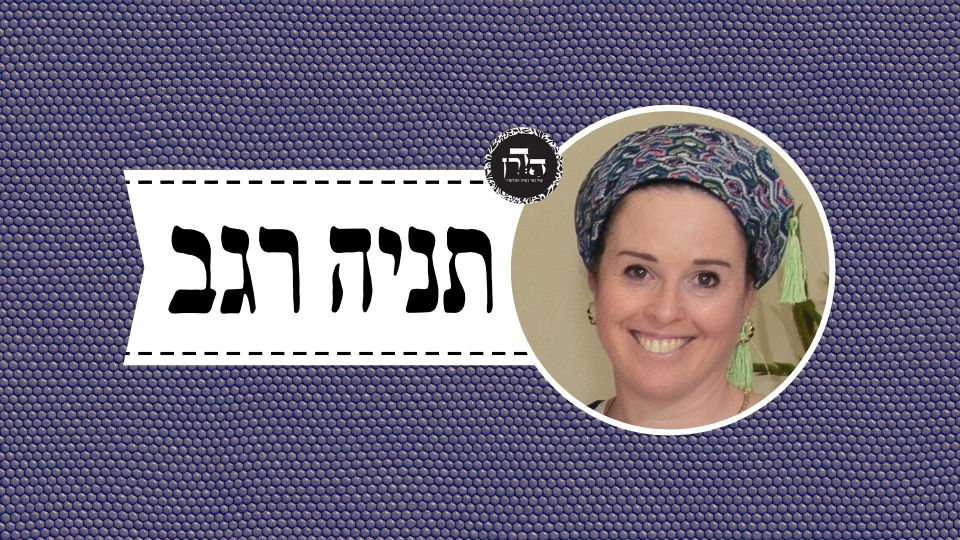חגיגה כד
לֹא נִצְרְכָא אֶלָּא לִשְׁיָרֵי מִנְחָה. דְּאוֹרָיְיתָא, צָרִיךְ לִכְלִי — הַכְּלִי מְצָרְפוֹ, שֶׁאֵין צָרִיךְ לִכְלִי — אֵין כְּלִי מְצָרְפוֹ.
Rabbi Akiva’s testimony is not needed to teach the basic halakha that a vessel combines its ingredients, which is Torah law; it is necessary only for the remainders of the meal-offering, the part of a meal-offering left over after a fistful of it and its frankincense have been sacrificed on the altar, which is eaten by a priest. In such a case the halakha of combining applies only by rabbinic law, for by Torah law only when an item requires a vessel in order for it to be sanctified does the vessel combine it with regard to impurity, even if its parts are not touching each other. But in the case of something that does not require a vessel, the vessel does not combine it. The remainder of a meal-offering no longer requires a vessel, since it is given to a priest after the fistful is sacrificed, so the flour in a vessel would not be considered combined according to Torah law.
וַאֲתוֹ רַבָּנַן וּגְזַרוּ דְּאַף עַל גַּב דְּאֵינוֹ צָרִיךְ לִכְלִי — כְּלִי מְצָרְפוֹ.
And the Sages came and decreed that even if something does not require a vessel, such as the leftover flour of the meal-offering, the vessel nevertheless combines it.
תִּינַח סֹלֶת, קְטוֹרֶת וּלְבוֹנָה מַאי אִיכָּא לְמֵימַר? אָמַר רַב נַחְמָן אָמַר רַבָּה בַּר אֲבוּהּ: כְּגוֹן שֶׁצְּבָרָן עַל גַּבֵּי קַרְטְבֻלָא. דְּאוֹרָיְיתָא, יֵשׁ לוֹ תּוֹךְ — מְצָרֵף, אֵין לוֹ תּוֹךְ — אֵינוֹ מְצָרֵף, וַאֲתוֹ רַבָּנַן וְתַקִּינוּ דְּאַף עַל גַּב דְּאֵין לוֹ תּוֹךְ — מְצָרֵף.
The Gemara raises a difficulty: It works out well in the case of flour, which can be said to refer to the flour left over from meal-offerings, but with regard to incense and frankincense, what is there to say? In these cases a vessel is certainly required, but if the halakha of combining applies to them from the Torah, why did Rabbi Akiva include them in his list? Rav Naḥman said that Rabba bar Avuh said: For example, if he piled them up on a leather board [kartavla], rather than in a containing vessel. By Torah law a vessel that has an inside combines its ingredients, but one that is flat and does not have an inside does not combine. And the Sages came and decreed that even if it does not have an inside it nevertheless combines what is placed on it.
וּפְלִיגָא דְּרַבִּי חָנִין אַדְּרַבִּי חִיָּיא בַּר אַבָּא. דְּאָמַר רַבִּי חִיָּיא בַּר אַבָּא אָמַר רַבִּי יוֹחָנָן: מֵעֵדוּתוֹ שֶׁל רַבִּי עֲקִיבָא נִשְׁנֵית מִשְׁנָה זוֹ.
The Gemara comments: And this opinion of Rabbi Ḥanin’s, that impurity by combining is derived from the Torah, disagrees with the opinion of Rabbi Ḥiyya bar Abba. For Rabbi Ḥiyya bar Abba said that Rabbi Yoḥanan said in reference to our mishna: This mishna was taught based on Rabbi Akiva’s testimony. In other words, the mishna’s teaching that a vessel combines its contents follows the statement of Rabbi Akiva, indicating that it is by rabbinic law, unlike Rabbi Ḥanin, who said that it is based on a source from the Torah.
הָרְבִיעִי בַּקֹּדֶשׁ פָּסוּל. תַּנְיָא, אָמַר רַבִּי יוֹסֵי: מִנַּיִן לָרְבִיעִי בַּקֹּדֶשׁ שֶׁהוּא פָּסוּל — וְדִין הוּא: וּמָה מְחוּסַּר כִּפּוּרִים שֶׁמּוּתָּר בַּתְּרוּמָה — פָּסוּל בַּקֹּדֶשׁ, שְׁלִישִׁי שֶׁפָּסוּל בַּתְּרוּמָה — אֵינוֹ דִּין שֶׁיַּעֲשֶׂה רְבִיעִי לַקֹּדֶשׁ? וְלָמַדְנוּ שְׁלִישִׁי לַקֹּדֶשׁ מִן הַתּוֹרָה, וּרְבִיעִי בְּקַל וָחוֹמֶר.
§ It was taught in the mishna: The fourth degree of impurity, with regard to sacrificial food, is disqualified. It is taught in a baraita: Rabbi Yosei said: From where is it derived with regard to the fourth degree of ritual impurity, that with regard to sacrificial food it is disqualified? It is a logical derivation, by a fortiori: If one who is lacking atonement, an impure person who is obligated to bring an offering to complete his purification process, who is permitted to eat teruma, is nevertheless disqualified with regard to the consumption of sacrificial food, as specified in the Torah, then concerning something that is impure to the third degree of ritual impurity, which is disqualified if it is teruma, is it not right that it should engender a fourth degree of ritual impurity when it touches sacrificial food? Therefore, we have learned that there is a third degree of impurity with regard to sacrificial food from the Torah, and that there is a fourth degree of impurity from a fortiori reasoning.
שְׁלִישִׁי לַקֹּדֶשׁ מִן הַתּוֹרָה מִנַּיִן? דִּכְתִיב: ״וְהַבָּשָׂר אֲשֶׁר יִגַּע בְּכׇל טָמֵא לֹא יֵאָכֵל״, מִי לָא עָסְקִינַן דִּנְגַע בְּשֵׁנִי, וְקָאָמַר רַחֲמָנָא ״לֹא יֵאָכֵל״. רְבִיעִי מִקַּל וָחוֹמֶר — הָא דַּאֲמַרַן.
The above baraita taught that there is a third degree of impurity for sacrificial food from the Torah. The Gemara asks: From where is this derived? As it is written: “And the meat that touches any impure thing shall not be eaten” (Leviticus 7:19). Is it not so that we are not dealing in that verse with meat that touches any “impure thing” at all, even if it touched something that is of the second degree of ritual impurity, which is also called an “impure thing”? And yet the Merciful One states with regard to that meat, which having touched a second-degree impurity is now impure to the third degree: “It shall not be eaten,” meaning that it has been rendered unfit due to impurity. And as for the baraita’s statement that the fourth level of impurity is derived by an a fortiori inference – it is as we said just above, the a fortiori inference put forth by Rabbi Yosei.
וּבַתְּרוּמָה אִם נִטְמֵאת כּוּ׳. אָמַר רַב שֵׁיזְבִי: בְּחִיבּוּרִין שָׁנוּ, אֲבָל שֶׁלֹּא בְּחִיבּוּרִין — לֹא.
§ It was taught in the mishna: And with regard to teruma, if one of one’s hands became impure with impurity by rabbinic law that renders only the hands impure, its counterpart, the other hand, remains pure. But with regard to sacrificial food, if one hand becomes impure he must immerse them both. Rav Sheizevi said: When they said that with regard to sacrificial food a hand that is rendered impure renders the other hand impure as well, they taught this only for a situation when the pure hand is in contact with the sacrificial food when the impure hand touches it. But if the pure hand is not in contact with the sacrificial food, no, the pure hand is not rendered impure by touching the impure hand. According to Rav Sheizevi, the Sages enacted the decree that one hand renders the other impure because they were concerned that the impure hand may have touched the sacrificial food directly without being noticed. Therefore, the decree applies only when the pure hand is touching the sacrificial food.
אֵיתִיבֵיהּ אַבָּיֵי: יָד נְגוּבָה מְטַמָּא חֲבֶירְתָּהּ לְטַמֵּא לַקֹּדֶשׁ, אֲבָל לֹא לַתְּרוּמָה, דִּבְרֵי רַבִּי. רַבִּי יוֹסֵי בְּרַבִּי יְהוּדָה אוֹמֵר: לִפְסוֹל, אֲבָל לֹא לְטַמֵּא.
Abaye raised an objection to Rav Sheizevi from the following teaching: Even a dry hand that is impure renders its counterpart, i.e., the other hand, impure, to the extent that the second hand will now render impure any food that it touches. This is true with regard to sacrificial food but not with regard to teruma. This is the statement of Rabbi Yehuda HaNasi. Rabbi Yosei, son of Rabbi Yehuda, says: The second hand is not rendered impure to such a severe extent. It can merely disqualify sacrificial food that it touches, by rendering it impure to the fourth degree, but not render it impure with third-degree impurity.
אִי אָמְרַתְּ בִּשְׁלָמָא שֶׁלֹּא בְּחִיבּוּרִין — הַיְינוּ רְבוּתַיהּ דִּנְגוּבָה. אֶלָּא אִי אָמְרַתְּ בְּחִיבּוּרִין — אִין, שֶׁלֹּא בְּחִיבּוּרִין — לָא, מַאי רְבוּתָה דִּנְגוּבָה?
Granted, if you say that the second hand becomes impure even when it is not in contact with the sacrificial food, this would explain the noteworthiness of a dry hand rendering its counterpart impure. It teaches that even though normally a dry hand would not render another hand impure, the Sages nevertheless declared it impure with regard to sacrificial food. But if you say that when the second hand is in contact with sacrificial food, yes, the decree that the second hand becomes impure applies, lest the impure hand touch the sacrificial food directly, but when it is not in contact, no, the decree does not apply, then what is the noteworthiness of stating that it applies in the case of a dry hand?
אִיתְּמַר נָמֵי, אָמַר רֵישׁ לָקִישׁ: לֹא שָׁנוּ אֶלָּא יָדוֹ,
It was also stated that amora’im disputed a similar issue: Reish Lakish said: They taught that one hand renders the other impure only if the second hand is his own hand,
אֲבָל יַד חֲבֵירוֹ — לֹא. וְרַבִּי יוֹחָנָן אָמַר: אֶחָד יָדוֹ וְאֶחָד יַד חֲבֵירוֹ, בְּאוֹתָהּ הַיָּד. לִפְסוֹל, אֲבָל לֹא לְטַמֵּא.
but an impure hand does not render impure the hand of another. And Rabbi Yoḥanan said: An impure hand renders another hand impure whether it is his own hand or the hand of another, provided the second hand is touched by the same hand that came into contact with the impurity. Moreover, the impure hand affects the food it touches only to disqualify it, but not to render it impure.
מִמַּאי — מִדְּקָתָנֵי סֵיפָא: שֶׁהַיָּד מְטַמְּאָה חֲבֶירְתָּהּ לַקֹּדֶשׁ, אֲבָל לֹא לַתְּרוּמָה. הָא תּוּ לְמָה לִי? הָא תְּנָא לֵיהּ רֵישָׁא! אֶלָּא לָאו שְׁמַע מִינַּהּ, לְאֵתוֹיֵי יַד חֲבֵירוֹ.
The Gemara elaborates on Rabbi Yoḥanan’s opinion. From where did he learn this? From the fact that it teaches in a latter clause in the mishna: For one renders its counterpart, i.e., the other hand, impure with regard to sacrificial food but not with regard to teruma. Why do I need this phrase as well? It was already taught in the first clause that one hand renders the other hand impure with regard to sacrificial food. Rather, must one not conclude from this added phrase that it comes to include the rendering impure of the hand of another as well as his own other hand?
וְאַף רֵישׁ לָקִישׁ הֲדַר בֵּיהּ, דְּאָמַר רַבִּי יוֹנָה אָמַר רַבִּי אַמֵּי אָמַר רֵישׁ לָקִישׁ: אֶחָד יָדוֹ וְאֶחָד יַד חֲבֵירוֹ, בְּאוֹתָהּ הַיָּד, לִפְסוֹל אֲבָל לֹא לְטַמֵּא.
The Gemara observes: And Reish Lakish, too, retracted his own opinion in favor of Rabbi Yoḥanan’s opinion. For Rabbi Yona said that Rabbi Ami said that Reish Lakish said: The decree that one hand renders another impure applies whether it is his own hand or the hand of another, provided the second hand is touched by the same hand that came into contact with the impurity. Moreover, the impure hand affects the food it touches only to disqualify it, but not to render it impure.
וְלִפְסוֹל אֲבָל לֹא לְטַמֵּא תַּנָּאֵי הִיא. דִּתְנַן: כׇּל הַפּוֹסֵל בִּתְרוּמָה — מְטַמֵּא יָדַיִם לִהְיוֹת שְׁנִיּוֹת, וְיָד מְטַמֵּא חֲבֶירְתָּהּ, דִּבְרֵי רַבִּי יְהוֹשֻׁעַ. וַחֲכָמִים אוֹמְרִים: יָדַיִם שְׁנִיּוֹת הֵן, וְאֵין שֵׁנִי עוֹשֶׂה שֵׁנִי בַּחוּלִּין.
The Gemara comments: And this opinion, that an impure hand affects the sacrificial food only to disqualify it but not to render it impure, is a dispute between tanna’im. As we learned in a mishna (Yadayim 3:2): Anything that disqualifies teruma by contact with it, i.e., anything that is impure at least to the second degree, renders the hands impure to the second degree. And furthermore, a hand that is impure to the second degree renders its counterpart, the other hand, impure; this is the statement of Rabbi Yehoshua. But the Rabbis say: Hands themselves are impure to the second degree, and that which is impure to the second degree cannot impart second-degree impurity to something else with regard to non-sacred food.
מַאי לָאו: שֵׁנִי הוּא דְּלָא עָבֵיד, הָא שְׁלִישִׁי עָבֵיד.
From the Rabbis’ response to Rabbi Yehoshua it is clear that the latter’s opinion is that the second hand is indeed rendered impure to the second degree, imparting third-degree impurity to sacrificial food that it touches. Moreover: What, is it not correct to infer from the Rabbis’ words that it is impurity to the second degree that the first hand does not impart to the second hand by touching it, but impurity to the third degree it does impart to the second hand? The second hand would thus only disqualify the sacrificial food that it touches by imparting to it a fourth-degree impurity. Therefore, the Rabbis and Rabbi Yehoshua are arguing about this very point: Does the second hand only disqualify sacrificial food by imparting to it fourth-degree impurity, or does it render the food impure with third-degree impurity?
דִּלְמָא לָא שֵׁנִי עָבֵיד וְלָא שְׁלִישִׁי.
The Gemara rejects this proof: Perhaps the Rabbis meant that the first hand does not impart impurity to the second hand to either the second or the third degree, for in their opinion one impure hand does not defile the other hand at all, in contradiction to the mishna, whereas the opinion expressed in the mishna would be following Rabbi Yehoshua.
אֶלָּא כִּי הָנֵי תַּנָּאֵי, דְּתַנְיָא: יָד נְגוּבָה מְטַמָּא אֶת חֲבֶירְתָּהּ לְטַמֵּא בַּקֹּדֶשׁ, אֲבָל לֹא לַתְּרוּמָה, דִּבְרֵי רַבִּי. רַבִּי יוֹסֵי בְּרַבִּי יְהוּדָה אוֹמֵר: אוֹתָהּ יָד לִפְסוֹל, אֲבָל לֹא לְטַמֵּא.
Rather, the issue of which degree of impurity is imparted to the second hand is like the following dispute between tanna’im, as it is taught in the baraita cited earlier: Even a dry hand that is impure renders its counterpart, i.e., the other hand, impure to the extent that the second hand will now render impure food that it touches. This is true with regard to sacrificial food but not with regard to teruma. This is the statement of Rabbi Yehuda HaNasi. Rabbi Yosei, son of Rabbi Yehuda, says: The second hand is not rendered impure to such a severe extent. It can merely disqualify sacrificial food that it touches, by making it impure to the fourth degree, but not render it impure to the third degree.
אוֹכְלִין אוֹכָלִים נְגוּבִין בְּיָדַיִם מְסוֹאָבוֹת כּוּ׳. תַּנְיָא, אָמַר רַבִּי חֲנִינָא בֶּן אַנְטִיגְנוֹס: וְכִי יֵשׁ נְגוּבָה לַקֹּדֶשׁ? וַהֲלֹא חִיבַּת הַקֹּדֶשׁ מַכְשַׁרְתָּן.
§ It was taught in the mishna: One may eat dry foods, i.e., foods that have never been wetted and are thus not susceptible to impurity, with impure hands in the case of teruma, but not in the case of sacrificial food. It is taught in a baraita that there is a difficulty with this statement of the mishna: Rabbi Ḥanina ben Antigonus said: Now, is there such a possibility as dry food, i.e., food that is not susceptible to impurity, with regard to sacrificial food? Is it not so that the reverence accorded to sacrificial food itself renders it fit to contract impurity even if it has never been in contact with liquid at all? All sacrificial food is thus automatically susceptible to impurity, and whether it is dry, i.e., it has never been wetted, or not is irrelevant.
לָא צְרִיכָא, כְּגוֹן שֶׁתָּחַב לוֹ חֲבֵירוֹ לְתוֹךְ פִּיו, אוֹ שֶׁתָּחַב הוּא לְעַצְמוֹ בְּכוּשׁ וּבְכַרְכֵּר, וּבִיקֵּשׁ לֶאֱכוֹל צְנוֹן וּבָצָל שֶׁל חוּלִּין עִמָּהֶן.
The Gemara answers: No, it is necessary for the mishna to state this. And the case is not one of dry sacrificial food, as was first assumed. Rather, the mishna is dealing with a case in which, for example, his friend inserted sacrificial food or teruma into his mouth, or, alternatively, a case in which he inserted it into his own mouth by means of a spindle or whorl, which are wooden vessels without receptacles that cannot contract impurity. In either event the food arrives in his mouth without being rendered impure by his impure hands. And then, while the sacrificial food or teruma is still in his mouth, he wishes to put into his mouth and eat a non-sacred radish or onion along with them.
לְקֹדֶשׁ גְּזַרוּ בְּהוּ רַבָּנַן, לִתְרוּמָה לָא גְּזַרוּ בְּהוּ רַבָּנַן.
Non-sacred food is not rendered impure by being touched with impure hands, so it should not be problematic to put a radish or onion into one’s mouth with his hands. However, regarding sacrificial food the Sages enacted a decree against doing so, lest the person inadvertently touch the sacrificial food in his mouth with his impure hand. This decree, the mishna teaches, applies only to sacrificial food, but in a case in which he had teruma in his mouth the Sages did not enact a decree against it.
הָאוֹנֵן וּמְחוּסַּר כִּפּוּרִים כּוּ׳. מַאי טַעְמָא — כֵּיוָן דְּעַד הָאִידָּנָא הֲווֹ אֲסִירִי, אַצְרְכִינְהוּ רַבָּנַן טְבִילָה.
§ It was taught in the mishna: An acute mourner and one who is lacking atonement require immersion in order to eat sacrificial food, but this is not necessary for teruma. The Gemara explains: What is the reason for this decree? Since until now it was prohibited for them to partake of sacrificial food and they therefore might not have guarded themselves properly from impurity, the Sages required them to undergo immersion before eating sacrificial food.
מַתְנִי׳ חוֹמֶר בַּתְּרוּמָה, שֶׁבִּיהוּדָה נֶאֱמָנִין עַל טׇהֳרַת יַיִן וָשֶׁמֶן כׇּל יְמוֹת הַשָּׁנָה, וּבִשְׁעַת הַגִּיתּוֹת וְהַבַּדִּים — אַף עַל הַתְּרוּמָה.
MISHNA: The previous mishna listed stringencies that apply to sacrificial food but not to teruma. However, there are also stringencies that apply to teruma over sacrificial food: In Judea all people, even people who are not generally meticulous in their observance of the halakhot of ritual purity [amei ha’aretz], are trusted with regard to the purity of consecrated wine and oil throughout all the days of the year. And during the period of the winepress and olive press, when grapes and olives are pressed and made into wine and oil, respectively, they are trusted even with regard to the purity of teruma, as all people, including amei ha’aretz, purify their vessels for this season.
עָבְרוּ הַגִּיתּוֹת וְהַבַּדִּים, וְהֵבִיאוּ לוֹ חָבִית שֶׁל יַיִן שֶׁל תְּרוּמָה — לֹא יְקַבְּלֶנָּה מִמֶּנּוּ, אֲבָל מַנִּיחָהּ לַגַּת הַבָּאָה. וְאִם אָמַר לוֹ הִפְרַשְׁתִּי לְתוֹכָהּ רְבִיעִית קֹדֶשׁ — נֶאֱמָן.
But once the periods of the winepress and olive press have passed, if amei ha’aretz brought to him, i.e., to a priest who is meticulous concerning the halakhot of ritual purity [ḥaver], a barrel of teruma wine, he may not accept it from them, as amei ha’aretz are not trusted with regard to matters of ritual purity during the rest of the year. But the giver may leave it over for the following winepress season, in the following year, at which point the ḥaver priest may accept it from him, although it was prohibited for him to accept the same barrel beforehand. And if the giver said to the priest: I separated and placed into this barrel of teruma a quarter–log of sacrificial wine or oil, he is trusted with regard to the entire contents of the barrel. Since an am ha’aretz is trusted with regard to the purity of sacrificial food, he is also believed with regard to teruma that is mingled with the sacrificial food.
כַּדֵּי יַיִן וְכַדֵּי שֶׁמֶן
With regard to jugs of wine and jugs of oil





























